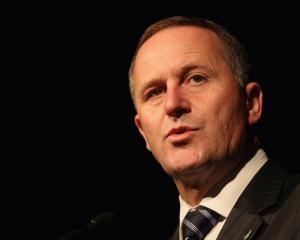Prime Minister John Key said a minimum price for alcohol would not curb youth binge drinking but targeted lower income drinkers.
He told TVNZ's Breakfast he was not convinced a minimum price for alcohol would work because it would force people to drink lower quality liquor instead of drinking less.
"What they're saying is that very cheap alcohol would move up a little bit in price. I think that would affect low-income people quite a bit.
"Young people go along and buy alcohol at the supermarket and they get completely laced up and then they go out to a bar late at night and have one or two drinks."
The Ministry of Justice is researching the effectiveness of a minimum price for beer, wine and spirits overseas, and is due to report its findings in September.
National's coalition partners the Maori Party submitted a supplementary order paper calling for a minimum price as part of the Alcohol Reform Bill.
Under minimum pricing, a bottle of wine would likely remain a similar price or increase slightly, but a three-litre cask of wine would double in price.
Alcohol watchdogs said minimum pricing was effective at raising the price of drinks that were high in alcohol relative to cost - such as cask wine. But retailers would be able to absorb the cost of a minimum price, so it would be ineffective unless accompanied by excise taxes.
Mr Key said at post-Cabinet conference he did not think an excise tax would stop people "pre-loading", binge-drinking before entering bars and pubs.
This went against advice from the Law Commission, which recommended a 50 per cent tax hike to push up the price of alcohol by an average 10 per cent.




